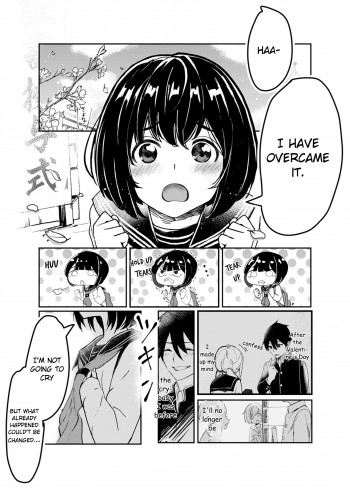
She Used to Be Nice
by Alexia LaFata
A young woman must confront her abuser in this gripping debut novel sure to captivate fans of Sweetbitter and My Year of Rest and Relaxation.
One night in college changed the course of Avery’s entire life. Her rapist took everything from her—including the trust of her friends and long-term boyfriend, who were convinced she cheated. A year later, she still can’t bear to tell the truth about what happened and risk her friendship with Morgan, the only friend she has left.
Instead, Avery finds her way under a man or into a bottle just to convince herself that she has power over her feelings and her autonomy—that her body still belongs to her. That is, until she meets Pete, a man so kind and good that he awakens a part of Avery that makes her want to try something new.
But somehow Avery’s rapist has resurfaced in her life as the best man in Morgan’s wedding. And as maid of honor, there’s no way Avery can avoid him. His mere presence grates at Avery’s already raw emotional state, and she begins to drive away the final few who care about her—including Pete.
As the wedding nears, Avery must decide whether to finally let her walls down and tell her truth or risk spiraling toward a darkness she may never be able to recover from.
Readers who seek out thought-provoking, character-driven stories and book club novels with strong discussion themes will love She Used to Be Nice.
.
Read
She Used to Be Nice on http://kissnovel.net
Martial Peak Reviews
Alexia LaFata’s debut novel, She Used to Be Nice, is a poignant exploration of trauma, resilience, and the complex journey toward self-reclamation. This gripping narrative is sure to resonate with readers who appreciate deeply character-driven stories that delve into the intricacies of human emotion and the aftermath of life-altering events.
The novel centers around Avery, a young woman whose life was irrevocably changed by a traumatic event during her college years. The incident not only shattered her sense of self but also eroded the trust of those closest to her. LaFata skillfully portrays Avery’s internal struggle as she grapples with the weight of her unspoken truth and the isolation that ensues. The author’s nuanced depiction of Avery’s emotional landscape is both heart-wrenching and compelling, drawing readers into the depths of her pain and the complexity of her coping mechanisms.
One of the novel’s most striking elements is its exploration of the theme of autonomy. Avery’s journey is marked by her attempts to reclaim control over her body and her life, often through self-destructive behaviors. LaFata does not shy away from portraying the raw and often uncomfortable reality of Avery’s choices, offering an unflinching look at the ways in which trauma can manifest in self-sabotage. This candid portrayal invites readers to empathize with Avery’s plight, even as they may struggle to understand her actions.
The introduction of Pete, a character who embodies kindness and genuine care, serves as a pivotal moment in Avery’s story. His presence challenges Avery’s long-held beliefs about herself and her worth, prompting her to consider the possibility of healing and connection. LaFata’s depiction of their relationship is tender and realistic, capturing the tentative steps Avery takes toward vulnerability and trust. Pete’s role in the narrative is crucial, as he represents a beacon of hope and the potential for redemption, even in the darkest of circumstances.
However, the reappearance of Avery’s rapist as the best man in her friend Morgan’s wedding serves as a catalyst for the novel’s central conflict. This plot development is both harrowing and compelling, forcing Avery to confront her past and the unresolved trauma that continues to haunt her. LaFata expertly builds tension as the wedding approaches, creating a palpable sense of urgency that propels the narrative forward. The emotional stakes are high, and readers will find themselves deeply invested in Avery’s journey toward self-disclosure and empowerment.
LaFata’s writing is both evocative and introspective, capturing the intricacies of Avery’s internal world with precision and sensitivity. The author’s ability to convey complex emotions with clarity and depth is a testament to her skill as a storyteller. The novel’s pacing is deliberate, allowing for a thorough exploration of Avery’s character and the themes at play. This careful attention to detail ensures that the story resonates on a profound level, leaving a lasting impact on the reader.
In terms of character development, Avery is a fully realized and multifaceted protagonist. Her journey is marked by moments of vulnerability, strength, and introspection, making her a relatable and compelling figure. LaFata’s portrayal of Avery’s evolution is both authentic and inspiring, offering a nuanced depiction of the healing process and the courage required to confront one’s past. The supporting characters, particularly Pete and Morgan, are also well-developed, adding depth and complexity to the narrative.
Comparisons to works like Sweetbitter by Stephanie Danler and My Year of Rest and Relaxation by Ottessa Moshfegh are apt, as She Used to Be Nice similarly delves into the inner lives of its characters with a keen eye for detail and emotional resonance. Like Danler and Moshfegh, LaFata explores themes of identity, trauma, and the search for meaning in a way that is both thought-provoking and deeply affecting.
Overall, She Used to Be Nice is a powerful and thought-provoking debut that tackles difficult subjects with grace and sensitivity. LaFata’s exploration of trauma, resilience, and the quest for self-reclamation is both timely and timeless, offering readers a story that is as compelling as it is cathartic. This novel is sure to spark meaningful discussions and resonate with anyone who has ever grappled with the complexities of healing and self-discovery.
In conclusion, Alexia LaFata has crafted a remarkable debut that is both a testament to the power of storytelling and a profound exploration of the human experience. She Used to Be Nice is a must-read for those who appreciate character-driven narratives that delve into the depths of emotion and the resilience of the human spirit. It is a story that will linger in the minds of readers long after the final page is turned, offering both solace and inspiration in its exploration of the journey toward healing and self-acceptance.











![I Became the Young Villain's Sister-in-Law [Official]](/upload/pic/manga/i-became-the-young-villains-sister-in-law--official-.jpg)












Reviews 0
Post a Reviews: